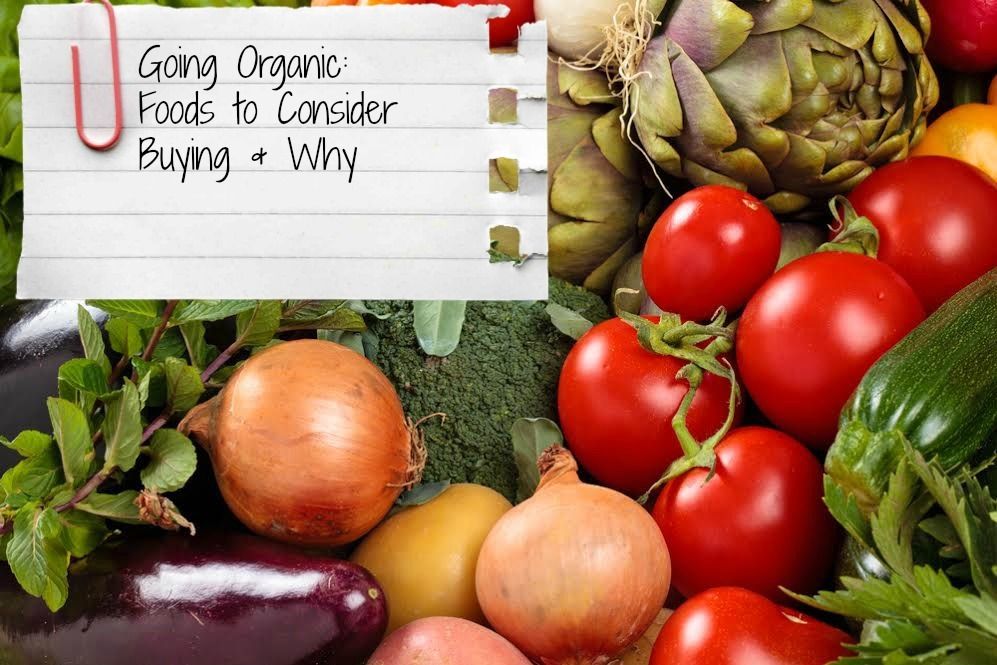Going Organic: Foods to Consider & Why

I have lots of friends who have recently decided to go organic. Which is why I knew I had to share this post from Dr. Josh Sandell of Orthology. I learned a lot from this article and I hope that you will enjoy it too.

Going Organic: Foods to Consider Buying & Why
Today’s markets offer so many organic options that grocery shopping can be overwhelming and a bit confusing for those interested in going organic. What makes the organic version of a particular food better than their non-organic counterpart? Typically, it’ll be a lack of pesticides and chemicals. One rule of thumb to keep in mind is that if you eat a fruit or vegetable with the skin on, you should opt for the organic version of it.
When most people think of going organic, they mainly think of choosing organic fruits or vegetables. However, there are other foods and even beverages that are also available in organic options to consider. To help give you a better idea of some foods you may want to look out for, Dr. Josh Sandell of Orthology, a world-class solution for rapid recovery from physical injuries and chronic pain, has created a list of foods you should consider buying organic, and why you should buy them that way.
Certain fruits: Apples, Strawberries and Peaches
With so many bugs and fungi that are attracted to fruits such as apples, strawberries and peaches, the number of pesticides used on them is rather high. Due to the amount of chemicals used on them, opting for the organic version of your favorite fruit can be quite a bit healthier for you. It’s important to note that organic fruits usually don’t contain preservatives, so you’ll want to eat them right away.
Wine, Juices and Sauces
Just as pesticides can reside with fruits that are naturally prone to bugs and fungi, consider going organic for some of your favorite products made from those fruits such as wine, juices or sauces. There are strict regulations placed on organic foods and beverages that strongly restricts the use of additives and fortifying agents that are often found in non-organic foods
Dairy Products
Milk and other animal by-products we regularly consume may be harmful to the human body as it can transfer hormones from the animal to the consumer. For example, if the dairy cows have been treated with hormones to stimulate milk production, we can end up drinking them and increasing our food-based estrogen intake. By choosing organic foods, you are guaranteeing your body higher nutrients including vitamin C, iron, magnesium, and phosphorous
Peanut Butter
While pesticides may not be much of a threat to peanuts, you still run into additives that can make a non-natural version less healthy for you. Hydrogenated oils and sugars are added to the spread, but when you opt for organic (or natural), you have pureed peanuts and possibly some salt – and that’s it. The oil on top of natural peanut butter is just nut oil that occurs naturally with peanuts.
There is so much information (and misinformation) about organic foods, I’m still trying to get it all straight myself. My daughter and I are trying to eat healthier, including cutting back on meat (I know I’ll never be able to get her to give it up completely, but at least I’m finding a growing number of non-meat options she likes). I just wish organic products weren’t so much more costly than non-organic ones.
We make our own nut butter. It’s so easy to do. The only ingredient is organic nuts that we buy. I feel better buying organic.